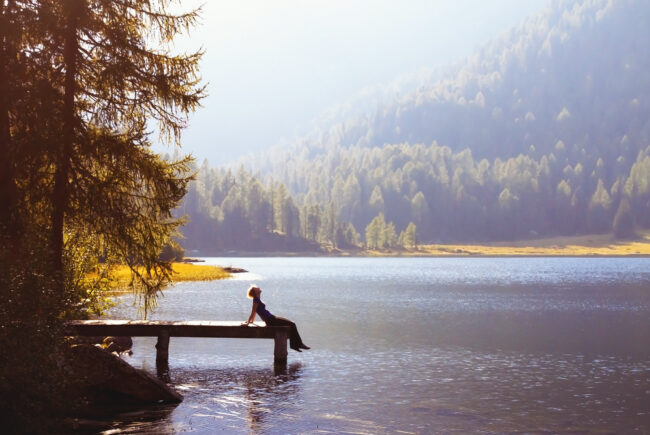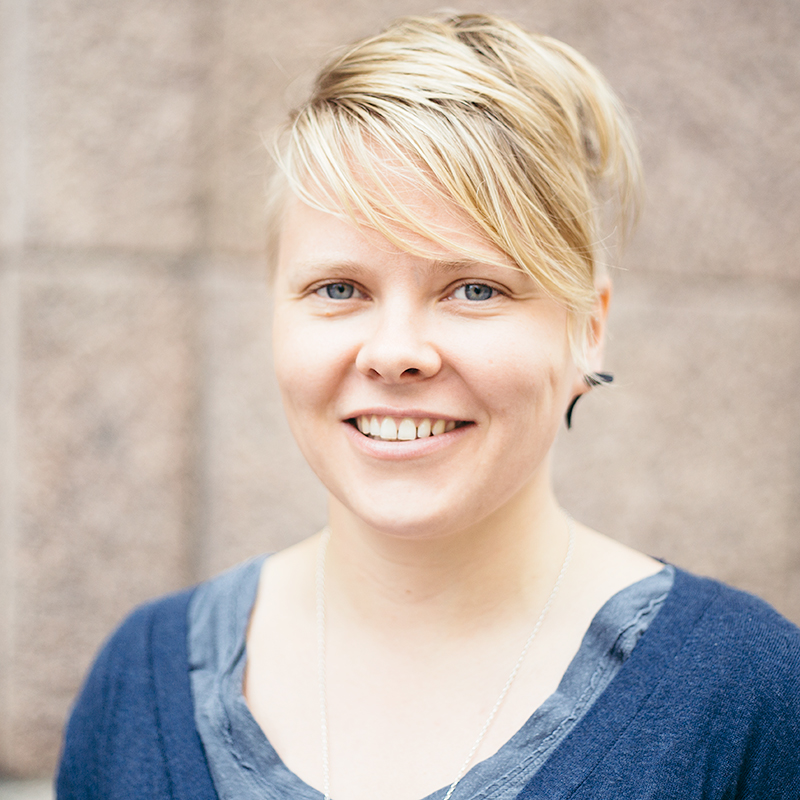

Sitting in a classroom for hours can make students feel jaded. Being outside in fresh air and new environment provides them with a new kind of possibility for developing their personal, social and academic skills. Photo credit: Shutterstock
Sitting in a classroom for hours can make students feel jaded. Being outside in fresh air and new environment provides them with a new kind of possibility for developing their personal, social and academic skills. Photo credit: Shutterstock
Using outdoors as a learning environment for children and youth has become more popular. Should we follow the same path with adult education?
Using outdoors as an environment for formal education has become more popular during the past ten years. In the Nordic countries outoor schools have for long shown the way especially with children and youth. Outdoor play is highlighted in the curricula, and nature is considered an essential place for play and learning by practitioners. If the benefits for better learning and social skills are clear, should we follow the same paths with adult education?
What is outdoor learning?
Outdoor learning, experiential pedagogy and adventure education are all approaches to teaching and learning. Although stressing different nuances, what they have in common is that learning is carried out with a practical, experiential and context-sensitive method somewhere outside using the elements available in the environment.
The environment, outdoors, can be anything from a weeklong camp in tents with no mobile phone reception to a ten-minute outing in a school yard.
The premise is learning by experiencing. The learner plays an active role in their own learning by self-reflection. Adventures like hiking, canoeing or lighting a fire to prepare a meal might be included, but are not indispensable for the learning.
Sitting in a classroom for hours can make students feel jaded. Being outside in fresh air and new environment provides them with a new kind of possibility for developing their personal, social and academic skills. When you are feeling relaxed and energetic, gaining new skills or knowledge also comes more easily.
“A barrier to learning is often that you dare not try and dare not express yourself. Feeling fragile can lead to being afraid of trying and learning. Learning always requires being humble, admitting to yourself that you don’t know everything so you have to explore and try out new things,” says Arto Tiihonen, PhD and Licentiate of Sports Science.
In a school setting, the relationships and roles are very restricted. Taking learning outdoors moulds the group dynamics and develops social skills.
“People get a chance to form different relationships with each other outdoors, and in particular with their teacher,” says Geoff Cooper, Fellow of the Institute for Outdoor Learning and a board member of the European Institute for Outdoor Adventure and Experiential Learning (EOE).
What are the benefits of learning outdoors instead of in a classroom?
Research into the impacts of outdoor learning is mainly done in the fields of psychology, and unfortunately little has been done in pedagogy. Outdoor learning has long been used in youth work, for example, and research into it has also been focused on children and youth, with adults somewhat neglected as learners.
Clear evidence can be hard to obtain, since some of the effects of learning outdoors are long-term, not immediate. Also, trainers and teachers use outdoor learning in different ways in different environments using different types of experiences.
The effects of exposure to nature are clear to science. It not only makes you feel better emotionally, but also contributes to physical wellbeing, reducing blood pressure, heart rate, muscle tension and the production of stress hormones.
Outdoor education and play increase mental and social well-being and support emotional, behavioural and intellectual development. Studies on children have shown that pupils who learn outdoors develop a sense of self, independence, confidence, creativity, decision-making and problem-solving skills, empathy towards others, motor skills, self-discipline and initiative.
Outdoor learning experiences obviously increase environment awareness and contribute to developing active citizenship.
Experienced adult educators using outdoor learning report that students learn the content better outdoors, have better learning skills and social skills, are more relaxed and do not skip lessons on the pretext of sickness.
What skills can outdoor learning increase?
Outdoor learning is not solely for learning about environmental subjects or survival skills. Experts say that anything can be taught outdoors.
Outdoor and adventure learning is often a vehicle for developing other skills. Adventure might be loud and competitive, but reflection on how you worked as a team and what you personally got out of it, takes it to a deeper level. Maths lesson in nature can introduce people to very abstract concepts better than numbers and drawings in a book can.
“With our adult learners, we use the outdoors as a learning environment for everything we teach in our programme,” says environmental educator Anna Kettunen from SYKLI Environmental School of Finland. Flipped learning is used to familiarise students with the content, but contact teaching happens in the wild and is reserved for learning theories by experimenting, creating projects and discussing.
A barrier to learning is often that you dare not try and dare not express yourself.
This form of pedagogy enhances the content skills of taught subject, but is also beneficial for working in groups and being innovative. It will also boost people’s confidence in their own ability to learn. Arto Tiihonen has taken several groups of immigrants on forest trips as part of their integration in order to hang out, think laterally and learn outdoor skills.
“Learning is based on a transfer effect. If I survived one task, I can survive the next as well.”
Those who are not familiar with traditional education or do not thrive in it might show totally the opposite side of themselves in the outdoors.
“I have seen those who underperform in school, blossom and unlock their skills in an outdoor setting. In the classroom you are restricted by the timetable, curriculum and tight structures. In the outdoors, skills not present in the classroom might be valuable,“ says Geoff Cooper.
Taking learning outdoors requires eagerness to try and courage from the teacher. Safety issues should also be taken care of. Field trips can be very different for example in a Scandinavian country where the nature culture is strong and outdoor activities more common.
SYKLI Environmental School of Finland where Anna Kettunen works as a director receives yearly European groups of educators through the Erasmus programme to learn more on environmental education and outdoor education, creativity in teaching and interdisciplinary and phenomena-based environmental outdoor education methods of teaching.
Her tips for any educator willing to take their classes outdoors are encouraging. It is easier to start with a group you know beforehand, and it might be helpful to include another trainer to assist. The first steps towards outdoor learning can be small and close to the normal premises of tuition. One exercise in the yard or in the nearby park before or after a lesson can be a start.
Author







